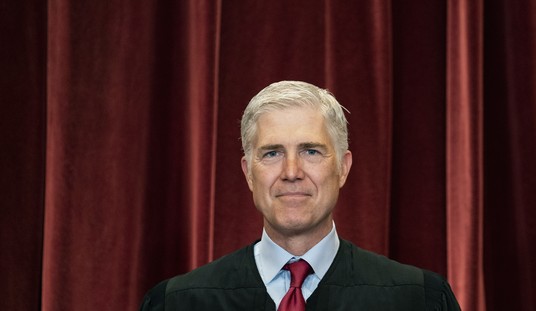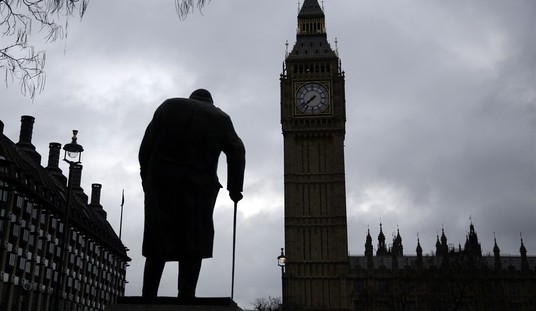I am writing from beautiful, dynamic Sydney, Australia, whose 4.5 million polyglot inhabitants are enjoying the no-nonsense good government of Prime Minister Tony Abbott, who recently signaled his refreshing sanity by abolishing the country’s stupid “carbon tax,” aka, its tax on prosperity. There’s no hope that Barack Obama will ever proceed from his Romper Room of moralistic environmentalism to that state of enlightenment, but then we will not have Obama with us that much longer. May we hope that, at last, the American people are waking up to the economic nightmare that decades of fiscal incontinence have prepared for the country. Again, I offer free and for nothing the idea of a grassroots organization whose high purpose is summed up in its title ThrowTheBumsOut.Org.
There are many aspects to this tsunami of of fiscal irresponsibility. One element, which gets intermittent attention in the news, is the monster of pension debt threatening to devour our livelihoods. “Yes, yes, yes,” I hear you saying. “But what does that really mean?”
There are a few folks — more and more, I am happy to say — who are out in the trenches bringing the sorry news back to us voters. One, which I have written about before in this space, is the great OpenTheBooks project out of Illinois. Another, which I just found out about this morning, is TransparentCalifornia.
California is an interesting state. Big. Populous. Dynamic. And ridden with debt. Even California’s perennial governor, Jerry “Governor Moonbeam” Brown, acknowledged the problem when he came to office and decried the state’s “wall of debt,” the nearly $25 billion debt the state faces. Governor Brown promised to fix things, but in fact the state’s current liabilities are only the tip of the problem. As a recent piece in the San Jose Mercury News noted, if you look behind that $25 billion wall:
You’ll see a $330 billion skyline of other liabilities threatening the state’s financial health. It includes $80 billion needed to cover teachers’ pensions and $64 billion to pay for state workers’ health care in retirement — two particularly troublesome liabilities because the state isn’t even making the minimum payments on them.
Let’s stop to contemplate that: $80 billion to cover teachers’ pensions and $64 billion for health care. How did that happen? In brief, the unions helped elect politicians who in turn made promises they couldn’t keep to the unions, who in turn helped re-elect the politicians, who in turn repaid that favor with even more generous tax-payer-funded subsidies, and so on ad, not infinitum, for that cannot happen, but certainly ad nauseam.
But what, in practical terms, does it all mean? Meet Tony M. Varela. He is the retired assistant fire chief in Los Angeles. His pension for 2013 was $998,456.61. Actually, his pension per se was only $983,319.65. The other $15,136.96 was “benefits.” Or how about James H. Cansler? He was a commander with the L.A. Fire Department. His package for 2013 was $798,400.49. It’s not just retired fire department employees, of course. It’s the whole rotten bureaucracy. Consider, for example, Howard P. Stapleton. Howie was a “program manager” for the City of San Diego. His package for 2013 was $621,027.31. And on and on it goes. TransparentCalifornia lists 31,754 pages of pensions for California: that’s 1,587,688 individual pensions. Click on that link. Then think about your state tax bill.
By coincidence, a friend sent me this observation from a 19th-century Scottish professor of history (though a reader has since informed me that, while the sentiment is pertinent, the attribution is faulty):
In 1887 Alexander Tytler, a Scottish history professor at the University of Edinburgh , had this to say about the fall of The Athenian Republic some 2,000 years prior: “A democracy is always temporary in nature; it simply cannot exist as a permanent form of government. A democracy will continue to exist up until the time that voters discover that they can vote themselves generous gifts from the public treasury. From that moment on, the majority always votes for the candidates who promise the most benefits from the public treasury, with the result that every democracy will finally collapse over loose fiscal policy, (which is) always followed by a dictatorship.”
Tytler went on to suggest that democracies tended to go through the following sequence:
From bondage to spiritual faith;
From spiritual faith to great courage;
From courage to liberty;
From liberty to abundance;
From abundance to complacency;
From complacency to apathy;
From apathy to dependence;
From dependence back into bondage.
I don’t agree that this process is necessary or inevitable. But seeing it laid out like that does make you sit up and take notice. “From apathy to dependence.” Sound familiar?








Join the conversation as a VIP Member